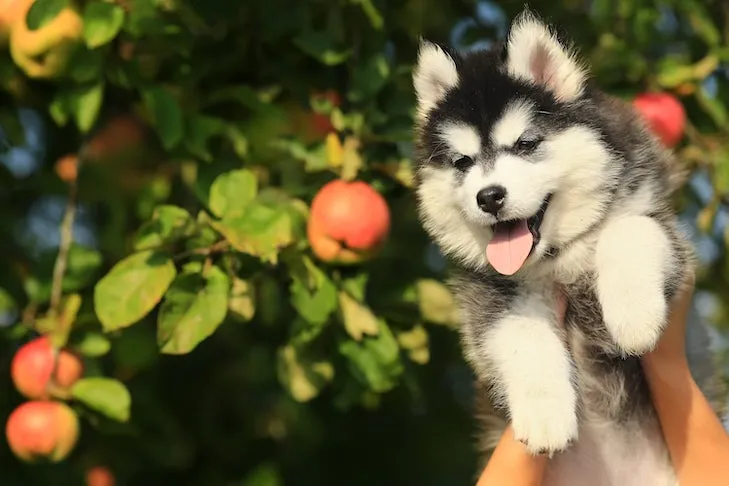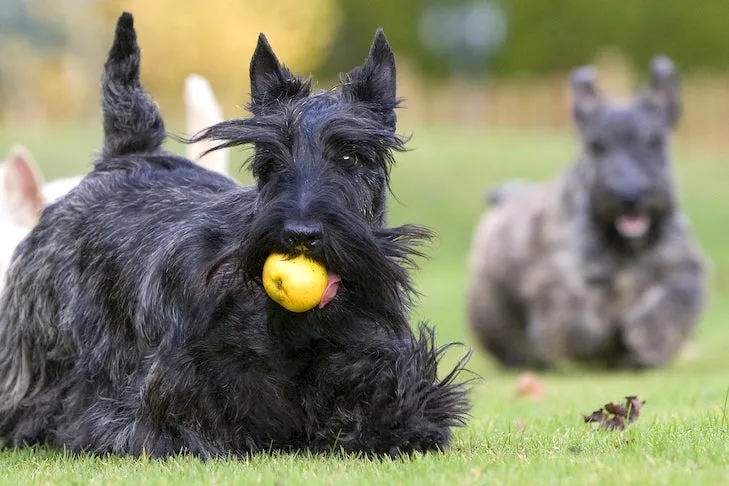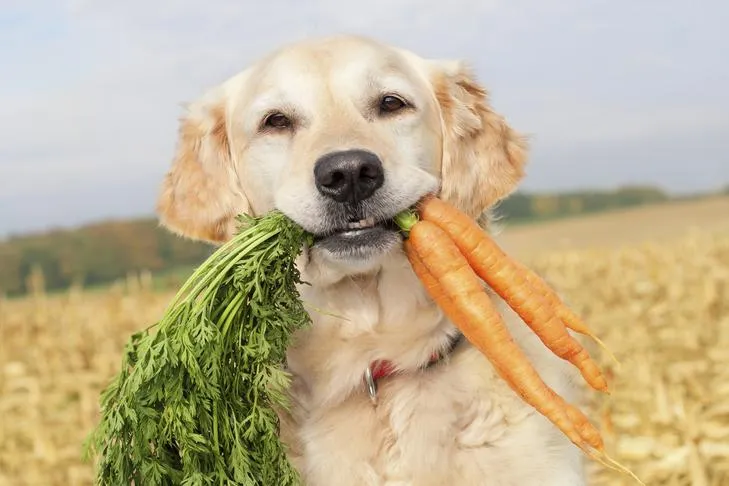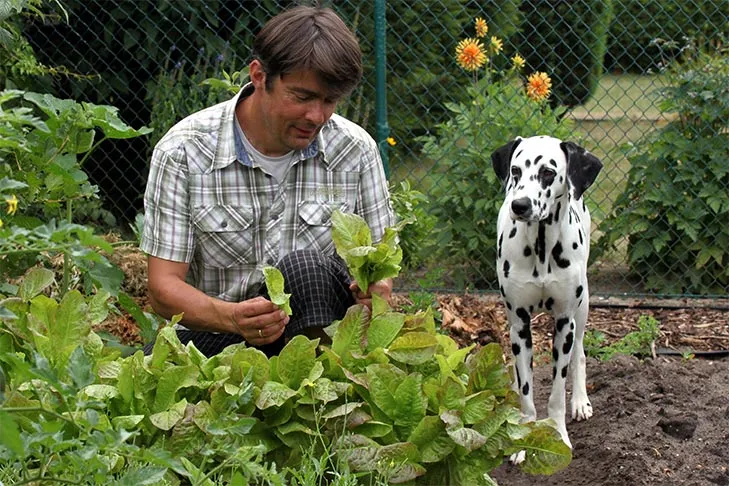It’s natural to want to share your favorite snacks with your furry best friend. After all, if a fruit or vegetable is healthy for you, it must be good for your dog, right? Not necessarily. Dogs have unique digestive systems and metabolic processes that differ significantly from humans. What might be a nutritious treat for us could be harmful, or even toxic, for our canine companions. Understanding which fruits and vegetables are safe and which should be strictly avoided is paramount for responsible pet ownership and ensuring your dog’s long-term health.
While many human foods offer nutritional benefits for dogs when given in appropriate portions, others contain compounds that can lead to severe health issues, ranging from mild gastrointestinal upset to acute organ failure and even death. This guide from Dog Care Story will delve into the world of fruits and vegetables, highlighting the dangers lurking in seemingly innocent produce and providing a clear list of what your dog should never eat, alongside safe and healthy options. Our aim is to equip you with the knowledge to make informed decisions about your dog’s diet and prevent potential emergencies.
The Importance of Knowing What Foods Are Toxic to Dogs
A dog’s digestive system is not designed to process all the same foods as humans. Their metabolism handles certain compounds differently, making them susceptible to toxins that we can easily neutralize. For instance, some fruits contain pits or seeds with cyanide, while others have natural toxins in their skins or flesh. Even seemingly innocuous plant parts, like leaves or stems, can be dangerous. Overlooking these differences can lead to serious health complications, from digestive upset and lethargy to more severe conditions requiring immediate veterinary intervention.
It’s crucial for every dog owner to be aware of these risks. Accidental ingestion can happen quickly, especially with curious pups who love to explore. Keeping potentially harmful foods out of reach and knowing the signs of poisoning are vital steps in protecting your dog. For a broader understanding of beneficial foods, explore [what is healthy for dogs to eat].
Fruits Your Dog Should NEVER Eat (Toxic & Dangerous)
When it comes to fruits, several pose significant health risks to dogs and should be kept entirely out of their diet. The severity of the reaction can vary based on the dog’s size, the amount consumed, and individual sensitivity, but the safest approach is complete avoidance.
Grapes and Raisins: The Ultimate Danger
Grapes and raisins (dried grapes) are among the most dangerous foods for dogs, regardless of breed, age, or sex. The toxic substance within them remains unknown, but even small quantities can cause acute sudden kidney failure. Symptoms can appear within a few hours and include vomiting, diarrhea, lethargy, abdominal pain, dehydration, and increased thirst. If you suspect your dog has eaten any amount of grapes or raisins, contact your veterinarian or an emergency animal hospital immediately. This is a critical veterinary emergency. Always ensure grapes and raisins are stored securely out of your dog’s reach, especially if children are present in the household.
Avocado: More Than Just a Healthy Fat
While avocado is a superfood for humans, it’s best kept away from dogs. The pit, skin, and leaves of avocados contain a fungicidal toxin called persin. While the fleshy inside of the avocado fruit has lower concentrations of persin, it can still be enough to cause gastrointestinal upset, including vomiting and diarrhea, in some dogs. Beyond the toxin, avocado flesh is also very high in fat. Consuming too much fat can lead to issues like pancreatitis, a painful inflammation of the pancreas, which can be severe. To be safe, avoid feeding any part of an avocado to your dog.
Cherries: The Hidden Cyanide Threat
Most parts of the cherry plant, with the exception of the fleshy fruit around the seed, contain cyanide, which is highly toxic to dogs. Cyanide interferes with cellular oxygen transport, meaning your dog’s blood cells can’t get enough oxygen. If your dog consumes whole cherries or cherry pits, watch for signs of cyanide poisoning, such as dilated pupils, difficulty breathing, and bright red gums. These symptoms indicate a veterinary emergency. Always remove cherry pits and dispose of them securely in a dog-proof trash can. It’s safer to avoid feeding cherries altogether.
Tomatoes: Proceed with Caution (Green Parts are Toxic)
The ripened red flesh of a tomato fruit is generally considered safe for dogs in very small amounts. However, the green parts of the tomato plant – including the leaves, stems, and unripe green tomatoes – contain a toxic substance called solanine. While a dog would likely need to eat a large quantity of the plant to get sick, it’s safer to err on the side of caution and prevent your dog from accessing any part of a tomato plant. Symptoms of solanine poisoning include gastrointestinal upset, lethargy, weakness, and loss of coordination. If your dog enjoys exploring your garden, it’s best to keep them away from tomato plants entirely.
 Rottweiler laying down in the yard, its head tilted, contemplating its next snack.
Rottweiler laying down in the yard, its head tilted, contemplating its next snack.
Vegetables Your Dog Should AVOID
Just like fruits, some vegetables are not suitable for dogs, even though they might be common in human diets. Knowing which ones to avoid is essential for your dog’s safety.
Onions, Leeks, and Chives: A Common Household Danger
Onions, leeks, and chives are all members of the Allium family and are highly poisonous to most pets, particularly dogs and cats. These vegetables contain compounds that can cause oxidative damage to red blood cells, leading to hemolysis (red blood cell rupture) and a form of anemia. Symptoms include vomiting, diarrhea, stomach pain, nausea, lethargy, weakness, and pale gums. Poisoning can be more serious in Japanese breeds like Akitas and Shiba Inus, but all dogs are susceptible. Even cooked or powdered forms (like onion powder in seasonings) are dangerous. Always ensure these ingredients are kept away from your dog and that any food containing them is secured.
Mushrooms: Wild Varieties are a Major Hazard
While some store-bought, washed mushrooms (like button or cremini mushrooms) are generally considered safe for dogs in very small, cooked amounts, wild mushrooms are an absolute no-go. There are thousands of mushroom species, and distinguishing between toxic and non-toxic varieties can be incredibly difficult, even for experts. Ingesting poisonous wild mushrooms can lead to a range of severe symptoms, including vomiting, diarrhea, tremors, seizures, liver failure, and even death. If your dog eats any wild mushroom, treat it as an emergency and contact your veterinarian immediately. It’s always best to assume any wild mushroom is toxic.
Asparagus: Little Benefit, Potential Issues
While asparagus isn’t typically considered toxic, it offers very little nutritional benefit to dogs. Raw asparagus spears are tough and fibrous, making them difficult for dogs to chew and digest, potentially leading to choking hazards or gastrointestinal upset. By the time asparagus is cooked down enough to be soft and digestible for a dog, most of its minimal nutritional value has been lost. Given the numerous other healthy and more beneficial vegetable options available, asparagus is simply not worth the effort or potential risk. For other vegetables to avoid, check out [what vegetables are not good for dogs].
Fruits Dogs CAN Eat (A Guide to Safe & Healthy Treats)
Fortunately, there are many delicious and nutritious fruits that you can share with your dog in moderation. These can make excellent low-calorie treats, providing vitamins, minerals, and antioxidants. Always remember to wash fruits thoroughly, remove any pits, seeds, or tough rinds, and cut them into bite-sized pieces to prevent choking.
Apples: A Crunchy, Vitamin-Rich Snack
Apples are a fantastic source of vitamins A and C, and fiber. They are low in protein and fat, making them an ideal snack, especially for senior dogs. Always remove the seeds and core before offering apple slices to your dog, as apple seeds contain small amounts of cyanide. Frozen apple slices can be a refreshing treat on warm days.
 A Siberian Husky puppy being gently held up in front of an apple tree, symbolizing natural goodness.
A Siberian Husky puppy being gently held up in front of an apple tree, symbolizing natural goodness.
Bananas: Potassium Powerhouse
In moderation, bananas are a great low-calorie treat packed with potassium, vitamins, biotin, fiber, and copper. They are also low in cholesterol and sodium. However, due to their high sugar content, bananas should only be given as an occasional treat and not form a regular part of your dog’s main diet.
Blueberries: Antioxidant Superfood
Blueberries are a true superfood for both humans and canines. Rich in antioxidants, they help prevent cell damage and are loaded with fiber and phytochemicals. These small berries are a wonderful training treat or a healthy addition to a meal. They are also a popular ingredient in many dog treats.
Cantaloupe: Hydrating and Nutritious
Cantaloupe is packed with nutrients, low in calories, and an excellent source of water and fiber, making it particularly hydrating. However, it is high in sugar, so serve it in moderation, especially for dogs who are overweight or have diabetes. Frozen cantaloupe cubes can be a delightful and refreshing summertime snack.
Cranberries: Tart and Beneficial
Both fresh and dried cranberries are safe for dogs in small quantities. While their tartness might not appeal to all dogs, cranberries contain antioxidants. When offering dried cranberries, ensure they are unsweetened, as many human-grade dried cranberries contain added sugars that dogs don’t need. Too many cranberries can cause an upset stomach, so moderation is key.
Cucumbers: Low-Calorie Hydration
Cucumbers are an excellent snack, especially for overweight dogs, as they contain very few carbohydrates or fats and are mostly water, providing satiating hydration. They are also loaded with vitamins K, C, and B1, as well as potassium, copper, magnesium, and biotin. Cool cucumber slices make a superb hot weather treat.
 A curious Russell Terrier with cucumber slices around its face, enjoying a refreshing snack.
A curious Russell Terrier with cucumber slices around its face, enjoying a refreshing snack.
Mango: Tropical Sweetness (Pit Removal Crucial)
This sweet, juicy tropical fruit is rich in vitamins A, B6, C, and E, as well as potassium and both beta-carotene and alpha-carotene. As with peaches and cherries, always remove the hard pit first, as it contains small amounts of cyanide and can be a choking hazard. Mango is also high in sugar, so offer it as an occasional treat, particularly for dogs prone to weight gain.
Oranges: Citrusy Goodness (Peel and Seeds Off)
Oranges are generally fine for dogs in small quantities, though many dogs may not appreciate their strong citrus smell or taste. They are an excellent source of vitamin C, potassium, and fiber. Veterinarians recommend only feeding the juicy flesh of the orange, minus any seeds and, most importantly, the peel. Orange peel can be rough on a dog’s digestive system, and the oils can cause upset.
Peaches: Summertime Favorite (Pit Warning)
Small amounts of cut-up fresh or frozen peaches can be a good source of fiber and vitamin A for dogs. However, like cherries, peach pits contain cyanide. It is absolutely crucial to completely cut the flesh away from the peach pit and dispose of the pit securely where your dog cannot access it. Avoid canned peaches due to their high sugar syrup content.
Pears: Fiber and Vitamins (Remove Core and Seeds)
Pears are a healthy snack, high in copper, vitamins C and K, and fiber. When sharing pears with your dog, be sure to cut the flesh into bite-sized chunks and remove the pit and seeds first, as pear seeds contain traces of cyanide. Again, skip canned or jarred pears that come with sugary syrups.
Pineapple: Tropical Treat (No Peel or Crown)
A few chunks of fresh pineapple can be a sweet and healthy treat for dogs, provided the prickly outer peel and crown are completely removed. This tropical fruit is full of vitamins, minerals, and fiber. It also contains bromelain, an enzyme that can aid in protein absorption. As with other fruits, avoid canned or packaged pineapple with added sugars.
Pumpkin: Digestive Aid Extraordinaire
Pure pumpkin is a highly beneficial food for dogs, revered for its digestive superpowers. It’s packed with antioxidants and is often used to help relieve both diarrhea and constipation. If using canned pumpkin, always choose 100% pumpkin puree, not pumpkin pie filling (which contains spices and sugar). You can also roast and peel fresh pumpkin yourself.
Raspberries: Small but Mighty (Xylitol in Moderation)
Raspberries are safe for dogs in moderation and contain beneficial antioxidants. They are low in sugar and calories but high in fiber, manganese, and vitamin C. Raspberries are particularly good for senior dogs due to their anti-inflammatory properties, which can help aging joints. However, raspberries contain small, naturally occurring amounts of xylitol (a sugar alcohol that is highly toxic to dogs in larger quantities), so limit your dog to no more than 8 ounces of fresh or frozen raspberries to be safe.
Strawberries: Vitamin C and Teeth Whitening
Strawberries are full of fiber and vitamin C, and they contain an enzyme that can even help whiten your dog’s teeth. Like all fruits, strawberries contain natural sugars, so offer them in moderation. Frozen strawberries can be a fun enrichment treat.
 A cute Pembroke Welsh Corgi inquisitively sniffing at a fresh strawberry on a blue background, ready for a healthy treat.
A cute Pembroke Welsh Corgi inquisitively sniffing at a fresh strawberry on a blue background, ready for a healthy treat.
Watermelon: The Ultimate Hydrator
Dogs can safely eat watermelon, but it’s crucial to remove all the seeds and the rind first, as they can cause intestinal blockage and digestive upset. The flesh of watermelon is incredibly hydrating (92% water) and packed with vitamins A, B-6, and C, as well as potassium, making it a perfect treat to keep your dog cool and hydrated on hot summer days. Freeze seeded chunks for an extra refreshing snack.
 Two playful Scottish Terriers frolicking happily in a lush green grass field, symbolizing healthy, active dogs.
Two playful Scottish Terriers frolicking happily in a lush green grass field, symbolizing healthy, active dogs.
Vegetables Dogs CAN Eat (Healthy Additions to Their Diet)
Many vegetables can be a healthy and beneficial addition to your dog’s diet when prepared correctly and offered in moderation.
Broccoli: Fiber and Vitamin C (Cooked and in Moderation)
Broccoli is safe for dogs in small amounts and best served as an occasional, cooked treat. It’s high in fiber and vitamin C and low in fat. However, broccoli florets contain isothiocyanates, which can cause mild to potentially severe gastric irritation in some dogs if consumed in large quantities. Tough broccoli stalks have also been known to cause obstruction. Always offer cooked broccoli to reduce these risks.
Brussels Sprouts: Nutrient-Dense (Beware of Gas!)
Brussels sprouts are loaded with nutrients and antioxidants that are beneficial for dogs. However, moderation is key, as feeding too many can lead to significant flatulence! If your dog enjoys them and you can tolerate the “results,” they can be a healthy, occasional treat.
Carrots: Crunchy, Healthy, and Good for Teeth
Carrots are an excellent low-calorie snack, rich in fiber and beta-carotene, which converts to vitamin A. The crunchy texture of raw carrots is also great for helping to clean your dog’s teeth. Carrots are a common ingredient in many commercial dog foods and treats for good reason.
 A contented Golden Retriever gently holding a bunch of fresh, vibrant carrots in its mouth, showcasing a healthy snack.
A contented Golden Retriever gently holding a bunch of fresh, vibrant carrots in its mouth, showcasing a healthy snack.
Celery: Heart-Healthy and Breath-Freshening
Celery contains vitamins A, B, and C, along with nutrients that can promote heart health. As an added bonus, some anecdotal evidence suggests celery can help freshen your dog’s breath! Cut it into small pieces to prevent choking.
Green Beans: Versatile and Nutritious
Chopped, steamed, raw, or canned (plain, no-salt added) – green beans are a versatile and safe vegetable for dogs. They are packed with important vitamins and minerals, full of fiber, and low in calories, making them an excellent healthy snack or meal topper.
Peas: Small, Sweet, and Packed with Goodness
Green peas, snow peas, sugar snap peas, and garden or English peas are all safe for dogs in moderation. Peas are rich in protein, high in fiber, and contain several beneficial vitamins and minerals. You can feed your dog fresh or frozen peas, but always avoid canned peas with added sodium.
Spinach: Proceed with Caution (Oxalic Acid)
While dogs can eat spinach, it’s not always the top recommendation. Spinach is high in oxalic acid, which can block the body’s ability to absorb calcium and, in very large amounts over time, potentially lead to kidney damage. A dog would need to consume a significant amount of spinach for this to be a concern, but many other vegetables offer more straightforward nutritional benefits without this caveat. If you choose to feed spinach, do so sparingly.
 A watchful Dalmatian observes a man gardening and picking leaves, perhaps curious about the leafy greens.
A watchful Dalmatian observes a man gardening and picking leaves, perhaps curious about the leafy greens.
Safe Feeding Practices and Portion Control
Even with safe fruits and vegetables, proper preparation and portion control are essential.
- Always Wash: Thoroughly wash all produce to remove pesticides and dirt.
- Remove Dangerous Parts: Always remove pits, seeds, cores, and tough rinds from fruits.
- Cut into Small Pieces: Cut fruits and vegetables into bite-sized pieces appropriate for your dog’s size to prevent choking.
- Moderation is Key: Treats, even healthy ones, should only make up 10% of your dog’s daily caloric intake. The high sugar content in some fruits, even natural sugar, can contribute to weight gain or exacerbate conditions like diabetes if overfed.
- Introduce Slowly: Introduce new foods gradually and in small quantities to monitor for any digestive upset or allergic reactions.
- Cook for Digestibility: For some vegetables like broccoli, cooking can make them easier to digest.
- Avoid Additives: Never feed canned fruits or vegetables with added sugar, salt, or syrups.
- Consult Your Vet: Always consult your veterinarian before making significant changes to your dog’s diet, especially if your dog has existing health conditions or dietary sensitivities. For information on encouraging picky eaters, refer to [what to do to get your dog to eat].
Recognizing Symptoms of Fruit Poisoning in Dogs
Knowing the signs of poisoning can save your dog’s life. If you suspect your dog has eaten a dangerous fruit or vegetable, look out for the following symptoms:
- Vomiting
- Diarrhea
- Lethargy or weakness
- Loss of appetite
- Abdominal pain or discomfort
- Changes in urination or thirst
- Tremors or seizures
- Pale or discolored gums
- Difficulty breathing
If your dog exhibits any of these symptoms after consuming a potentially toxic food, contact your veterinarian or an emergency animal clinic immediately. Do not wait for symptoms to worsen. Time is often critical in cases of poisoning.
Conclusion
Sharing food with your dog is a joyful part of pet ownership, but it comes with the responsibility of knowing what is safe and what isn’t. While many fruits and vegetables offer healthy, natural treats for your canine companion, a significant number of common human foods can be highly toxic or dangerous. By understanding which fruits your dog shouldn’t eat – such as grapes, avocados, cherries, and tomatoes’ green parts – and which vegetables to avoid like onions and wild mushrooms, you can prevent potentially life-threatening situations.
Always prioritize your dog’s safety by keeping toxic foods out of reach, preparing safe options correctly, and feeding all treats in moderation. When in doubt, it’s always best to stick to commercially prepared dog treats or consult your veterinarian. Your vigilance and informed choices are the best way to ensure your beloved pet lives a long, healthy, and happy life.
References
- American Kennel Club (AKC) – Various articles on dog nutrition and safe/unsafe foods.
